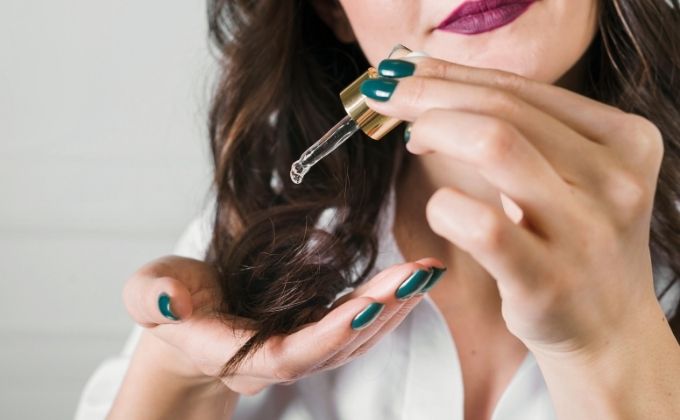When it comes to achieving strong, shiny, and healthy hair, many people find themselves overwhelmed by conflicting advice. From home remedies to expensive salon treatments, it’s not always clear which methods truly work. The key lies in knowing how to get answers that are backed by facts and tailored to your unique hair type and needs. Instead of relying on myths or quick fixes, understanding the science behind hair health helps in making informed choices that bring visible, long-lasting results.
Understanding the Basics of Hair Growth
Before you can find the right solutions, it’s important to know how hair actually grows. Hair goes through cycles: the anagen phase (growth), the catagen phase (transition), and the telogen phase (resting). On average, hair grows about half an inch per month, though this can vary depending on genetics, diet, and overall health. By learning how to get answers rooted in biology, you’ll see that patience and consistency are essential. Quick fixes often fall short because they fail to address the root causes of hair issues.
Nutrition: Fueling Hair from Within
Healthy hair growth starts with what you put in your body. Nutrients like protein, biotin, zinc, and vitamins A, C, D, and E all play critical roles in strengthening hair strands and stimulating follicles. Omega-3 fatty acids from fish, nuts, and seeds help maintain scalp health, which is just as important as the hair itself. Instead of relying only on external treatments, knowing how to get answers about your nutritional needs through a balanced diet or professional guidance can significantly improve the quality and shine of your hair.
Hair Care Habits That Truly Matter
Daily routines can either support or damage your hair. Simple practices like avoiding excessive heat styling, not washing with overly hot water, and choosing sulfate-free shampoos make a big difference over time. Gentle brushing helps distribute natural oils, while regular trims prevent split ends. By observing how your hair responds and learning how to get answers through trial and adjustment, you’ll discover which habits best preserve its natural shine.
The Role of Scalp Health
A healthy scalp is the foundation for strong hair. Issues like dandruff, clogged follicles, or excess oil production can hinder growth and cause dullness. Regular cleansing with mild shampoos, occasional exfoliation, and scalp massages with natural oils like coconut or argan oil improve blood circulation and nutrient delivery to follicles. If persistent scalp problems arise, consulting a dermatologist is the most effective way of knowing how to get answers that address the root cause instead of just masking the symptoms.
Busting Common Hair Care Myths
When searching for healthy hair solutions, you’re bound to encounter misleading information. Some people believe trimming hair often makes it grow faster, but trimming only prevents breakage—it doesn’t affect follicle growth. Others think brushing hair hundreds of times a day makes it shinier, but over-brushing can actually cause damage. By learning how to get answers from reliable sources like dermatologists, trichologists, or scientific studies, you can separate facts from myths and focus on proven practices.
Natural Remedies vs. Professional Treatments
Coconut oil, aloe vera, and onion juice are popular natural remedies believed to improve hair health. While some offer benefits like hydration and scalp nourishment, they aren’t miracle cures. Professional treatments such as keratin therapy, PRP (platelet-rich plasma), or laser stimulation can also provide results but may be costly and not suitable for everyone. The key is to balance natural and professional care by figuring out how to get answers specific to your hair’s needs, budget, and long-term goals.
Stress and Lifestyle Factors
Emotional and physical stress have a direct impact on hair growth, often leading to hair shedding or thinning. Poor sleep, lack of exercise, and smoking can also weaken hair follicles. On the other hand, managing stress through yoga, meditation, and regular physical activity can improve overall wellness and reflect positively on your hair. Understanding how to get answers by looking beyond products and considering lifestyle habits often reveals why some people struggle with growth and shine despite using the best products.
When to Seek Professional Help
Sometimes, hair problems go beyond what home remedies and over-the-counter products can fix. Conditions like alopecia, chronic dandruff, or sudden hair thinning require medical attention. Consulting a dermatologist or trichologist ensures that you get accurate diagnoses and targeted treatments. By taking the time to learn how to get answers from qualified experts, you save yourself from frustration, wasted money, and ineffective solutions.
Long-Term Commitment for Long-Lasting Shine
The secret to achieving healthy, shiny hair isn’t one magic product—it’s a long-term commitment. Consistency in diet, care routines, and stress management all contribute to lasting results. Instead of constantly switching to the latest trend, stick to a regimen that works for you and be patient with the process. Ultimately, knowing how to get answers that are tailored, science-backed, and practical ensures you build habits that keep your hair vibrant and strong for years to come.



